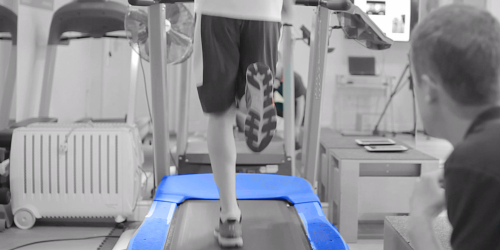Pelvic Health - FREE Education Evening
My free evening talk will provide you with some in depth advice on the causes of Pelvic Health problems and what you can do to improve them.
Two main topics we will discuss are Urinary incontinence and Pelvic organ prolapse
- Urinary incontinence
- Stress Urinary Incontinence- this is where a pressure or ‘stress’ on the bladder causes leakage of urine. The common things people report are coughing, laughing, sneezing, lifting something heavy or during exercise.
- Urge urinary Incontinence – this is urinary leakage that is associated with a strong desire to pass urine. So you get the feeling of needing to go but cannot reach the toilet in time or you have little warning. For some this can start as just feeling urgent to get to the toilet or needing to go more frequently but often over time these women can start to develop leakage as well.
- Pelvic Organ Prolapse- this is where one of the pelvic organs – the bladder, uterus or rectum start to rest lower in the vagina – this is often felt as heaviness or a bulge in the vagina. Some people can physically see or feel a lump but for many others nothing can be seen it is just an awareness of not feeling comfortable or being more open at the vagina.
1 in 3 women have noticed at least one of these issues and it is estimated that 1 in 2 women have a prolapse on examination.
However due to how common both urinary incontinence and pelvic organ prolapse are it has led to many women being led to believe these issues are ‘normal’ and therefore often they do not address them straight away or even at all.
BUT
I want to highlight– although urinary incontinence and pelvic organ prolapse are very common they should not be ignored and should not be something you have to put up with – they can be improved by specialist women’s health physiotherapy.
In my free education evening, I am going to talk to you about
- What is normal for our bladder
- How to recognise when things are not right
- What could be causing these issues
I see so many patients who have put up with these issues for years and they all say I wish I had done something about this sooner or tackled it before as it has changed my life.
So here are the things to look out for that are common in women but not normal or something we have to put up with
- Having to rush to the toilet to pass urine – we should be able to hold on at least 20-30 minutes from when we get the sensation of needing to wee
- Having to plan your journey around where the next toilet is or even avoiding trips completely because of your bladder
- Getting any leakage of urine – whether this be due to stress or urge incontinence
- The feeling of frequently having to go to the toilet – it is normal to pass urine between 5-7 times per day and 0-1 in the night.
- Feeling uncomfortable or heavy in the vagina. Some people say it can feel like something is falling down in the vagina – this is often intermittent and more noticeable when you’ve been on your feet a long time or doing something more physical like lifting or exercising
- Pain or feeling you might leak urine when you have sex
We can assess all of these symptoms and more. Women’s health physiotherapy can provide you with treatment to improve these but you need the right diagnosis by someone who knows how to assess you and what to look out for.
If you do this the advantages are
- Not having to worry about where the next toilet is or change your plans because of your bladder
- Not having to wear liners or pads for urinary leakage
- Being able to continue with exercise comfortably
- Not having to limit or watch what you are drinking in case you need to wee
- Not having to cross your legs each time you cough / sneeze or laugh
- Not have to worry that the heaviness in the vagina is getting worse
It might be you have had these issues for a long time, have just started to notice them, or that this advice has helped you realise that you do have some of these problems but hadn’t realised they were not normal until now. Whichever it might be the sooner you act the quicker and easier things are to improve but it is never too late, I have seen and helped women from age 16 to 90+.
Here are some of the common things that contribute to urinary incontinence, prolapse and needing to go to toilet frequently:
- Weak pelvic floor muscles – these muscles need the right amount of strength to support the whole vagina and the neck of the bladder
- Poor co-ordination of the pelvic floor muscles- these muscles need to be able to work at the right time and the right speed
- Certain drinks – the main culprits here are caffeine and fizzy drinks
- Habits that we have developed over time about going to the toilet
- Particular exercises – these can be different for each person but are often linked to high impact exercise such as running or jumping or exercises such as sit-ups.
- Constipation- this can make the bladder and any prolapse worse but can be changed no matter how long you have suffered with it.
It is important to understand that all of these things I have listed above are things that can be improved with specialist women’s health physiotherapy.
Often people get incorrect or incomplete advice and so things never improve or they give up as they see no change in their problems after seeing someone about it, but I see so many women who start to improve quickly with the correct diagnosis and tailored treatment.
If you have any questions then please feel free to get in touch by emailing me at Jodie@synergy physio.co.uk
As I said at least 1 in 3 women develop these issues at some point in their life – so to help you understand them and improve them I am running a free women’s health education evening at :
Synergy physiotherapy in Egham on Monday 13th May at 7pm.
This evening talk will provide you with some in depth advice on the causes of these problems and what you can do to improve them. This session is for all women – either if you are having issues now or just want to know what to look out for in the future.
To book on to this free talk then please click the link below.
I look forward to seeing you there.
Thank you,
Jodie Hayward
Specialist Women’s Health Physio






